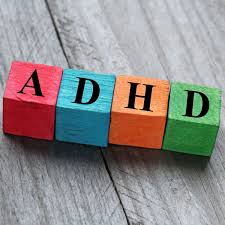
Attention-Deficit/Hyperactivity Disorder (ADHD) is a condition that affects the brain’s executive functions, which include tasks like organizing, prioritizing, and focusing. One of the key challenges for individuals with ADHD is difficulty in focusing on the most important tasks first, often leading them to direct attention toward less critical or distracting activities. This tendency to focus on the "wrong" things is closely tied to how the brain of someone with ADHD processes stimuli.
1. Impulsivity and Lack of Prioritization
One of the hallmarks of ADHD is impulsivity—the tendency to act or focus without thinking through the consequences. When a task appears, the ADHD brain may quickly latch onto it, especially if it’s something that feels more interesting, stimulating, or easier. This can cause individuals to start tasks that feel urgent or rewarding in the moment, even if they are not the most important things to do. For example, an individual might focus on answering a text message instead of completing a work assignment that requires more concentration and effort.
2. Difficulty with Task Initiation
People with ADHD often struggle with task initiation, meaning they find it hard to start projects, especially if they seem overwhelming or uninteresting. As a result, they may avoid starting important tasks by turning to less demanding activities. This avoidance can lead to procrastination, which only makes it harder to focus on more essential tasks later.
3. Hyperfocus on Small Details
While ADHD often makes it difficult to focus on the big picture, it can also cause hyperfocus on small details. When someone with ADHD becomes fixated on a specific part of a task—like organizing papers in a specific order or obsessing over minute details—they may lose sight of the larger, more urgent priorities. This happens because their brain becomes overly engaged in specific stimuli, making it challenging to shift attention.
4. Challenges in Time Management
People with ADHD often struggle with time management and may fail to recognize how much time is being spent on less important activities. They may jump from one task to another, thinking they’re being productive, when in reality, they are not addressing what needs to be done first.
Understanding these patterns can help individuals with ADHD develop strategies to manage their time better, such as setting clear priorities, breaking tasks into smaller steps, and using reminders to stay focused on the most important work.




 click and follow Indiaherald WhatsApp channel
click and follow Indiaherald WhatsApp channel